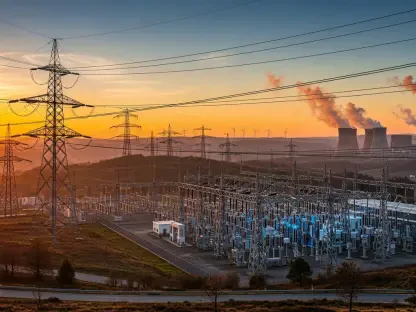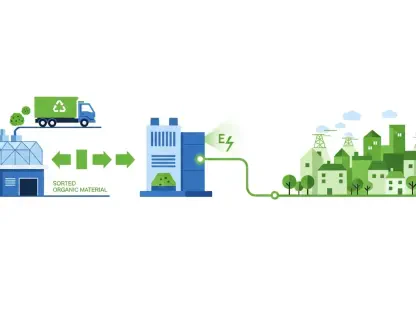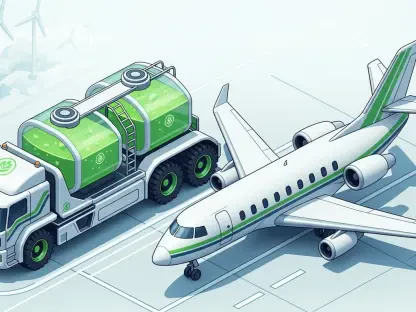EasyJet’s collaboration with ATOBA Energy and World Fuel Services marks a significant shift in the aviation industry. This partnership aims to bolster the long-term supply of sustainable aviation fuel (SAF) across Europe and the UK, a pivotal aspect of EasyJet’s decarbonization strategy. A Memorandum of Understanding (MoU) has been signed to ensure sustainability in air travel, reflecting a concerted effort to address the industry’s environmental impact. SAF presents a viable alternative to traditional aviation fuels, potentially reducing carbon emissions and furthering the industry’s journey toward sustainability.
Overcoming Challenges in the SAF Market
Addressing Pricing and Supply Volatility
SAF integration into aviation has faced challenges, notably pricing and supply volatility, which hinder widespread adoption. ATOBA Energy plays a critical role in mitigating these risks by aggregating SAF from various sources, offering airlines like EasyJet a stable and predictable supply. This management approach aims to reduce the ups and downs associated with SAF availability and pricing, enabling airlines to embrace sustainable practices more confidently. By smoothing out these fluctuations, the partnership can foster long-term investment and expand the SAF market’s reach.
Achieving competitive pricing for SAF while securing producers with long-term contracts is another hurdle. Airlines seek affordable fuel options, but producers need stability for sustained production. The partnership seeks to strike a balance between these conflicting interests. By facilitating comprehensive agreements that integrate diverse production technologies, ATOBA Energy and World Fuel Services ensure that both producers and airlines can achieve their goals. This model promotes industry-wide growth, encouraging more stakeholders to commit to sustainable fuel solutions.
Building Long-Term Agreements
Long-term agreements are pivotal for scaling SAF adoption across the aviation industry. ATOBA Energy’s strategy involves managing multiple SAF offtake agreements across different production technologies, minimizing technological and pricing risks. Such a robust framework allows for more prolonged contract durations that can stabilize SAF supply chains. These agreements connect airlines, fuel distributors, producers, and financial institutions, creating a collaborative ecosystem for SAF’s growth.
World Fuel Services complements this effort by leveraging its expertise in jet fuel logistics, encompassing blending, storage, and distribution. Its role focuses on ensuring regulatory compliance and seamless integration of SAF into EasyJet’s operations in Europe and the UK. Such logistical proficiency contributes substantially to fulfilling the partnership’s promise of a consistent and efficient sustainable fuel supply. This comprehensive approach underscores the commitment of all parties to an environmentally conscious aviation future.
Setting a Precedent for Sustainable Aviation
Pioneering Change in the Industry
The EasyJet partnership with ATOBA Energy and World Fuel Services serves as a beacon for sustainability in aviation. By adopting cutting-edge SAF technologies, these industry leaders illustrate the feasibility and benefits of transitioning to cleaner fuel alternatives. EasyJet’s proactive stance in collaboration with its partners sets a precedent for others in the aviation sector, encouraging them to invest in sustainable operations. This strategy aligns operational practices with environmental goals, striving to minimize carbon footprints globally.
Positioning themselves as trailblazers, EasyJet and its allies swing the focus towards sustainable operational cost management catering to aviation’s future needs. As this paradigm shift unfolds, other airlines may follow suit, gravitating towards SAF as a cornerstone of their decarbonization efforts. The leadership demonstrated in this initiative strengthens EasyJet’s reputation as an innovator, setting strategic benchmarks for other aviation entities considering transformative changes.
The Role of Advanced SAF Technologies
The prospect of advanced SAF technologies offers a promising outlook for the aviation industry. EasyJet’s collaboration emphasizes adopting innovative solutions to meet the growing demand for sustainable practices. By investing in and promoting SAF, the partnership addresses environmental concerns while maintaining efficient fuel supplies. This dual focus not only inspires industry-wide change but also encourages producers and stakeholders to adopt new technologies continuously.
Innovation fueled by advancements in SAF production and distribution holds the promise of a greener aviation sector, where sustainability becomes an integral part of business operations rather than an added concern. As industry leaders spearhead these transitions, the benefits transcend EasyJet, ATOBA Energy, and World Fuel Services, impacting global aviation standards. This commitment spells progress not only for aviation but for global sustainability pursuits in tackling climate change.
Building a Sustainable Future in Aviation
EasyJet’s strategic collaboration with ATOBA Energy and World Fuel Services signals a transformative shift within the aviation sector. This partnership is geared toward enhancing the sustainable aviation fuel (SAF) supply chain throughout Europe and the UK, a key component of EasyJet’s long-term decarbonization efforts. By signing a Memorandum of Understanding (MoU), the involved parties showcase a unified commitment to minimize the aviation industry’s environmental footprint, striving for innovative, eco-friendly solutions. SAF serves as a promising alternative to traditional fossil fuels, significantly aiding in the reduction of carbon emissions, thus propelling the industry towards greater sustainability. As aviation grapples with the pressing challenges of climate change, such initiatives are indispensable. They underscore the emphasis on sustainable development within a sector notorious for high carbon outputs, ultimately working towards a greener future and reducing the overall environmental impact of air travel.









